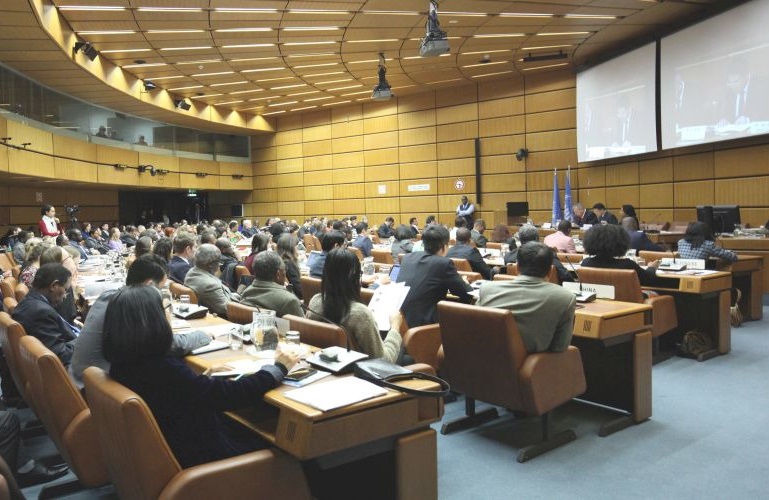
On Africa Industrialization Day, UNIDO re-affirms its support for productive sector-led growth
VIENNA – November 20th, 2017 – The United Nations Industrial Development Organization brought together a wide range of African Ministers, senior policymakers, academics, representatives of UN organizations and entrepreneurs to mark Africa Industrialization Day (AID), as proclaimed by the UN General Assembly in 1989.
The purpose of AID is to raise global awareness of the industrialization challenges faced by the continent and to mobilize both African leaders and international organizations to advocate for the accelerated and sustainable industrialization of Africa.
Speaking at the opening of the symposium, the Director General of UNIDO, LI Yong, said that “recognizing the scale of the actions needed, UNIDO – with its long-standing expertise in supporting countries to achieve inclusive and sustainable industrial development – stands ready to contribute.”
A message from the UN Secretary-General, delivered by UNOV’s Yury Fedotov, re-affirmed “the continued strong commitment of the United Nations to support Africa’s industrialization, the implementation of a continental free trade agreement, and the building of inclusive, resilient, peaceful and prosperous societies for all.”
As 2016 marked the beginning of the Third Industrial Decade for Africa (IDDA3), this year’s AID continues to play a special role in promoting the acceleration of sustainable industrial development in Africa. The objective of this year’s Day was to raise awareness of the importance of African industrial development in implementing a successful Continental Free Trade Area (CFTA), therefore further growing Africa’s economy, and supporting the eradication of poverty.
The African continent is the second most-populated continent in the world, home to over 1.2 billion people, or 16% of the world’s population. Despite this, Africa currently only accounts for less than 2% of international trade and global manufacturing. In order to overcome poverty, and lead their countries to prosperity, African leaders are agreed on the need to focus on inclusive and productive sector-led growth, allowing vulnerable communities to benefit from and contribute to the economy.
This year’s symposium sought to provide an overview of challenges the African continent is currently facing in achieving industrialization, highlight the importance of a CFTA and its benefits, deliver an account of recent successful strategies and propose additional measures to be put in place for maximizing intra-African trade and enhancing competitiveness. It also explored options for seizing opportunities to boost support in these endeavours in order to facilitate the success of future strategies.
Written by UNIDO
Related Post
The future of entrepreneurship with AI
AI-native startups are redefining the nature of entrepreneurship through accelerated scaling. With leaner teams, evolving funding dynamics, ...
Micro and small businesses can act...
In an international context where conflicts have reached their highest level since the Second World War, what role can micro, small, and med...
Celebrating Women Entrepreneurs: Key Insights from...
According to the GEM 2024/2025 Global Report entitled Entrepreneurship Reality Check, far too many women entrepreneurs are still seen by nat...




